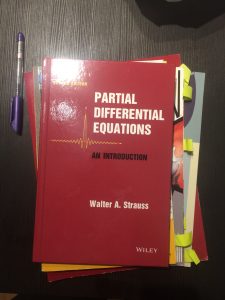
It’s exam time! Lucky for you, in my last Cognitive Development lecture we learned a little about effective studying. I’m going to share a couple of things I learned for you to keep in mind when and as you study.
I’m going to state the obvious first -- don’t cram. Try not to. Rehearsal is the most ineffective way of studying, and that’s what most rely on one or two nights before the exam. The thing is, your brain tries to learn new information in a way that will be most useful to you later. You must study in accordance to that. One of the biggest mistakes we as students make before exams is that we assume we should to skip lectures and stay at home and study. We separate learning the material and studying for the exam. Well, separating learning from studying is the first red flag because that defeats the purpose of being at University. Secondly, when you attend lecture you get a huge benefit -- in addition to the material there’s the audiovisual stimuli complementing it. If you really tune in and are present and interactive, it’s pretty interesting how a lot of the information just sticks with you. I remember writing an exam once and playing the lecture in my head to formulate my response. Your brain will try its best to remember what is most important for your future (in this case, exams) in the easiest way possible. A great way to take advantage of this is to chunk your material while studying. Chunking involves creating something more meaningful—and as a result memorable, from seemingly random bits of information. Meaning is important because once you make the material relevant to your life and existence, your brain is going to do its best to remember it.
Another way to make the material relevant is to write your own exam paper. While you’re reading the material, write questions on another paper and come back to them later. Get your brain into the habit of testing what it has encoded, or what you think it has encoded. When you don’t make questions you assume that you know the material and wait for the exam to point out the gaps. Don’t do that. Identify as many of them as you can before instead. Making this list is not as hard as you think. Based on the midterm, you have an idea of what the structure is like. Most professors are happy to answer questions about what exactly they are testing and how (in terms of structure) they’re going to do it. Make use of this. Another great way to make use of this is to have a group study session and come up with questions collectively. This is also helpful for discussion (as a result making more connections) on the material.
Now, there is a phase of utilisation deficiency. You see, the study methods I told you are more effective but they take more time to grasp -- definitely more time than just using rehearsal to memorize the material. And so initially your performance will degrade a little. When this happens, most students panic and default to rehearsal. But understand that the short term (slight) drop in performance is worth the long term benefit of truly knowing your material. So if you’re going to take anything away from this -- let it be that you need to make the material as relevant to you as possible. Look at it from a different point of view, talk to your friend about it, make a question paper and chunk seemingly random information. And most importantly, don’t forget to get your rest. Sleep helps with consolidation and by depriving yourself of it, you’re missing out on the benefit. Best of luck!

0 comments on “Studying effectively”